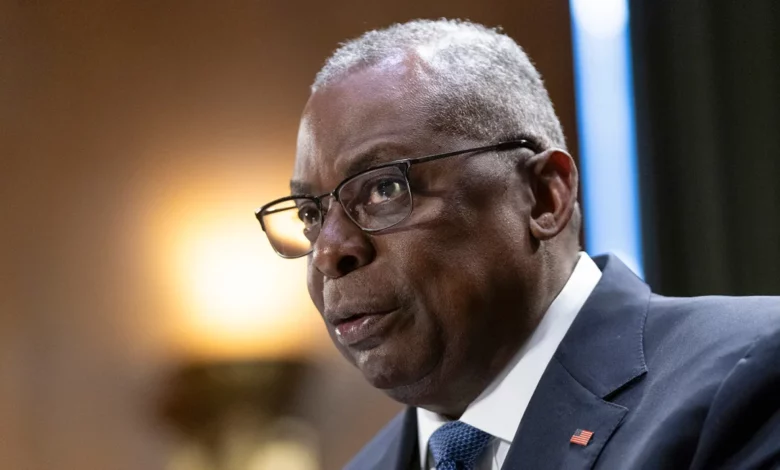
Secretary of Defense Lloyd Austin is visiting Israel on Monday to get a clearer assessment from Israeli officials on their military operations, marking the latest administration official to visit the country amid an intensifying rift between President Joe Biden and Israeli Prime Minister Benjamin Netanyahu over mounting civilian casualties in Gaza.
Biden is under increasing pressure, domestically and internationally, to push Netanyahu away from the heavy bombardment of Gaza, which has sparked global outcry and calls for a sustained ceasefire.
CNN reported earlier this month that US officials expected Israel could transition by January to a lower-intensity, hyper-localized strategy that narrowly targets specific Hamas militants and leadership. A senior defense official said Sunday that Israel’s security establishment is assessing the conditions necessary to move to that next phase of the conflict “on an hourly if not daily basis” and that Austin wants to hear “a very clear articulation of their self-assessment” on Monday.
Austin will receive updates on how the Israel Defense Forces, the War Cabinet and Defense Minister Yoav Gallant are assessing the current phase of the campaign in Gaza, while also getting a sense of what metrics they’re using to transition to the next phase, the official said.
Gen. CQ Brown Jr., chairman of the Joint Chiefs of Staff, will also be in Israel, joining Austin for “meetings with senior Israeli officials,” Pentagon spokesman Maj. Gen. Pat Ryder said last week.
Austin’s conversations will focus on “the assessment of the campaign to date, specific operational milestones that need to be achieved,” the defense official said, adding that “we would expect any partner to be planning for what comes next.”
Austin’s visit comes on the heels of a visit to Tel Aviv by national security adviser Jake Sullivan, and just days after blunt remarks by Biden calling on Israel to do more to protect civilians in Gaza.
Sullivan said Friday that Israel would be transitioning to another phase of the war “that is focused in more precise ways” on targeting the leadership of Hamas. Responding to a question from CNN’s Alex Marquardt, Sullivan said Israel “tries to distinguish” between targets that would result in civilian deaths and targets that hit Hamas.
“What we have consistently said is that Israel has the intent to make sure that it is drawing those distinctions clearly and in a sustainable way,” Sullivan said. “And we want to see the results match up to that.”
The Palestinian Ministry of Health, which bases its numbers on data received from hospitals in Hamas-controlled Gaza, said in a statement Sunday that roughly 18,800 Palestinians have died in Gaza since October 7, 70% of whom are women and children – figures that CNN cannot independently verify.
Ahead of Austin’s visit, Democratic Sen. Chris Van Hollen, who serves on the Senate Foreign Relations Committee, said Sunday the US’ message to reduce civilian casualties is not “getting through clearly enough” to Israel.
“We do have unacceptably high levels of civilian casualties. We see very loose rules of engagement – way looser than anything the United States would exercise,” the Maryland Democrat said on ABC’s “This Week.”
Across the aisle, GOP presidential contender Chris Christie said on CNN’s “State of the Union” on Sunday that Israel should “lower the temperature inside the IDF if they can” in the wake of the accidental fatal shooting of three Israelis held hostage in Gaza. But the former New Jersey governor – who trails in primary polling – argued the administration’s public criticism of Israel is giving “aid and comfort to Hamas.”
While the senior defense official said Austin will deliver the message that US support of Israel’s right to self-defense is unwavering, Biden has been increasingly direct in public remarks that Israel has to do more to limit harming civilians.
Last week, Biden told Democratic donors in Washington that while Israel “has most of the world supporting it,” it is “starting to lose that support by the indiscriminate bombing that takes place.” And on Thursday, Biden said he did not want Israel to “stop going after Hamas,” but to “be more careful” and “be focused on how to save civilian lives.”
While in Israel on Monday, Austin will have “very specific areas” he wants to “drill down on” with the Israelis, including how they plan to increase humanitarian aid access and what steps they’re taking to “mitigate civilian harm.”
Still, officials told CNN last week that despite the growing outcry for Israel to do more to protect civilians, the Biden administration has no plans to put conditions on its military aid to the country. And the senior defense official said Sunday that Austin’s commitment to Israel has not wavered.
“[H]e wants to make sure that the Israelis have the support and assistance necessary for them to defend themselves to protect their citizens in their country,” the official said.




